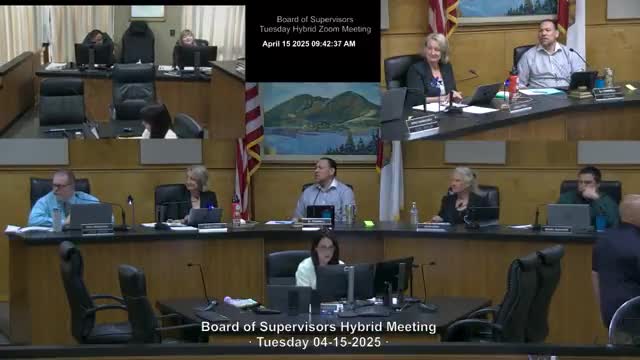Article not found
This article is no longer available. But don't worry—we've gathered other articles that discuss the same topic.
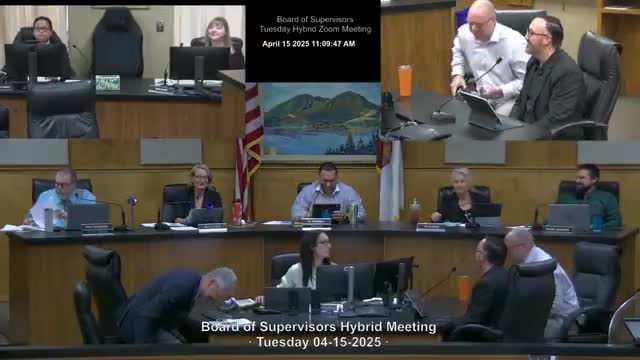
Board asks staff to request Sonoma Clean Power update feasibility study for Lake County CCA service and discusses geothermal potential
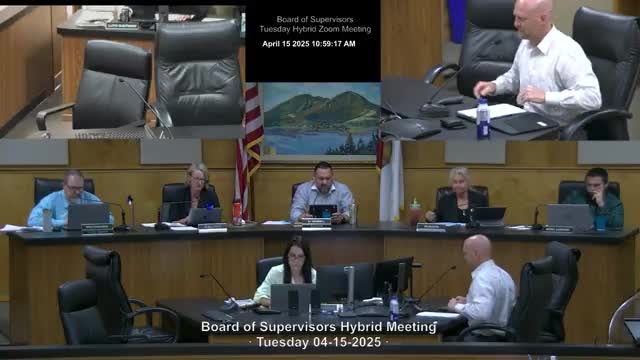
County approves $1.2M energy contract for solar carports and battery backup at county libraries
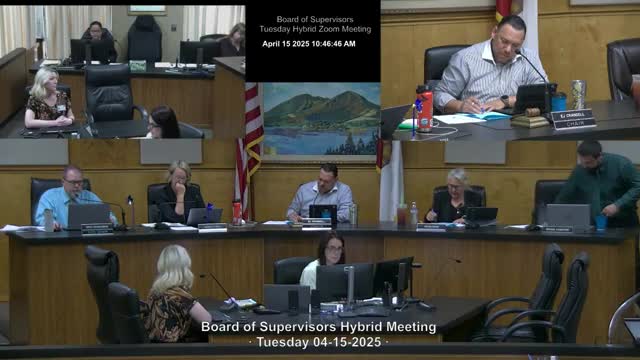
Supervisors approve $15,000 transfer to public guardian for conservatee’s private placement; vote 4-1
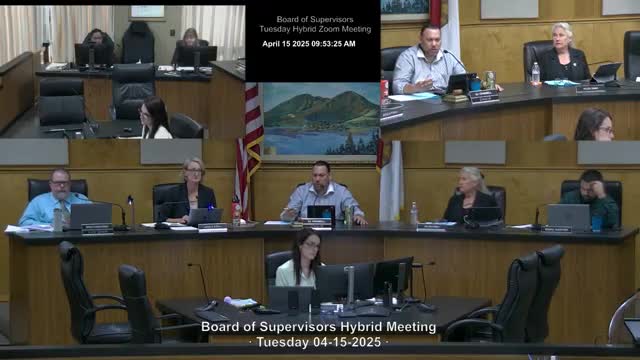
Board approves $330,000 amendment to Davis Guest Home contract amid rising placements
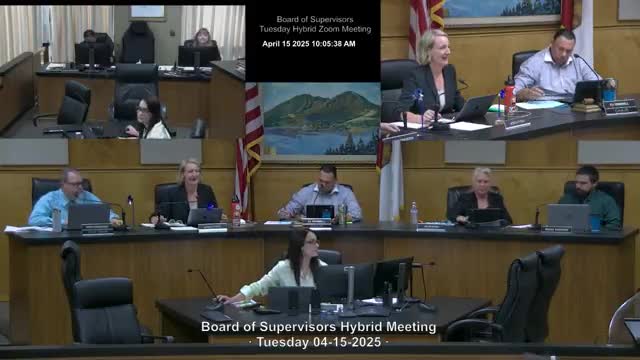
North Coast Opportunities’ BUILD program reports high job placement rate and ARPA funding extension
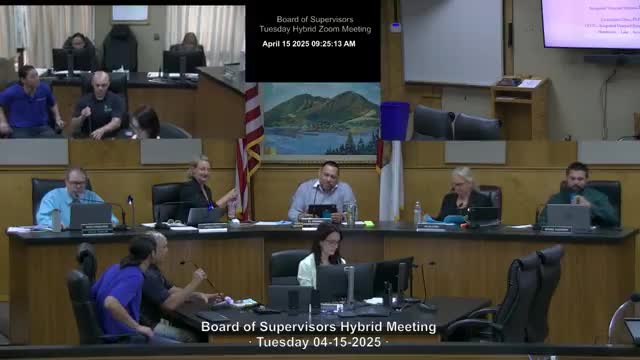
UC Cooperative Extension outlines vineyard research on drought, frost and smoke impacts
